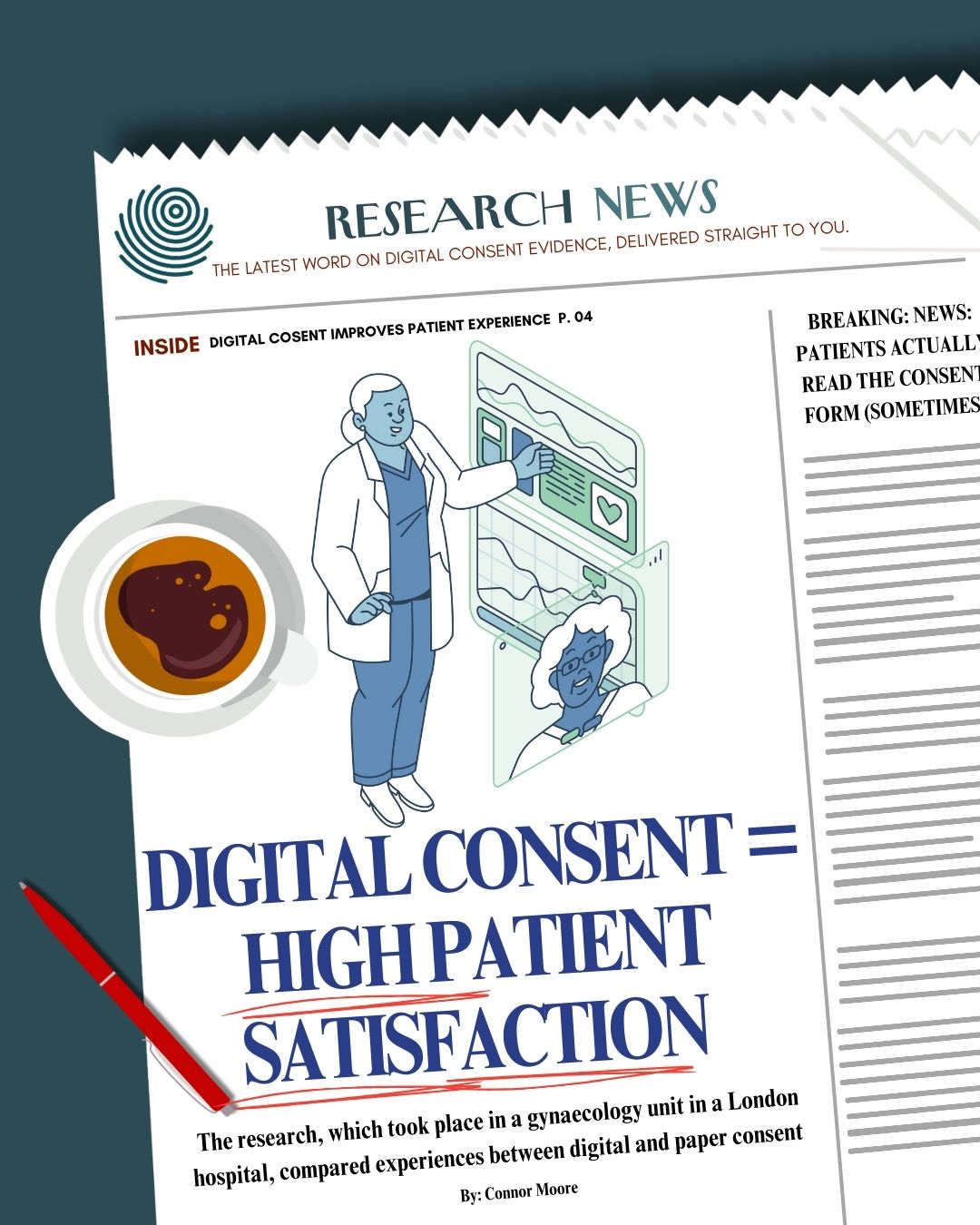
Published in the Archives of Gynaecology and Obstetrics, this study provides compelling evidence that digital consent leads to higher patient satisfaction compared to traditional paper consent in gynaecological surgery.
The research, conducted at a tertiary London teaching hospital, compared patient experiences between digital and paper consent processes across 100 patients undergoing gynaecological procedures (50 using digital, 50 using paper).
Key findings
The study revealed digital consent achieved significantly higher satisfaction scores than paper in several key areas: ease of reading the consent form, ease of understanding the content, understanding of potential complications, and overall satisfaction with the consent process.
Additional findings include:
- 86% of patients using digital consent received a copy of their form, compared to only 18% with paper consent,
- patients who gave their consent digitally were more than twice as likely to “strongly agree” that the form was easy to read, and
- digital consent performed well across all age groups, including older patients.
The human touch
Importantly, the study found no evidence that digital consent reduced patient-clinician interaction. In fact, patients reported having more time and opportunity to ask questions when giving consent digitally - suggesting the technology may help facilitate rather than hinder meaningful dialogue.
Breaking down barriers
“There are speculative concerns about the negative impact of the shift toward electronic documentation, including less eye contact with patients,” note the authors. “However, our results would suggest patients felt that they had more time and opportunity to ask questions when they were consented digitally.”
The study found that digital consent worked well even for older patients, with the median age in the digital consent group being over 60 years old. This adds to growing evidence that age need not be a barrier to adopting digital healthcare solutions.
Looking ahead
As healthcare continues to digitalise, this study provides important evidence that digital consent can enhance rather than detract from the patient experience in gynaecology. The authors conclude that “continued digitalisation will ensure patients are fully informed and receive information in a manner acceptable to them: the surgical consent process may have found its place in the digital world.”